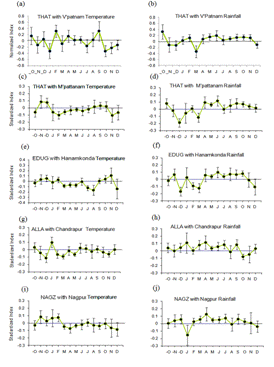Scientist Profile

Dr. Saikat Sengupta
Designation
: Scientist E
Phone
: 91 (020) 25904427
Fax
: 91-(0)20-25865142
Email ID
: saikat[at]tropmet[dot]res[dot]in
| Degree | University | Year | Stream |
|---|---|---|---|
| B.Sc. | Presidency College, Kolkata | 1999 | Geology (Hons.) |
| M.Sc | IIT Bombay | 2001 | Applied Geology |
| M.Tech. | IIT Bombay | 2003 | Geo-exploration |
| Ph.D. | IIT Kharagpur | 2008 | Geology and Geophysics |
 Understanding Hydrologic cycle through chemical and isotopic tracers
Understanding Hydrologic cycle through chemical and isotopic tracers
 Isotope and classical dendroclimatology
Isotope and classical dendroclimatology
 Contaminant transport in groundwater
Contaminant transport in groundwater
| Award Name | Awarded By | Awarded For | Year |
|---|---|---|---|
| Brain Korea (BK21) post doctoral fellowship | Kunsan National University , South Korea | Post doctoral research | 2010 |
| Post Doctoral Fellowship | National Cheng Kung University, Taiwan | Post doctoral research | 2010 |
| Golda Meir Post Doctoral Fellowship | Hebrew University of Jerusalem, Israel | Post doctoral research | 2008 |
| First Track Young Scientist | Dept. Sc. & Tech, SERC, India | Post doctoral research | 2008 |
| Research Associateship | Council of Scientific and Industrial Research, India | Fellowship for carrying out post doctoral research | 2008 |
| Travel grant for Best Student Paper Award in Asia Oceania Geosciences Society meeting (AOGS)-2005, Singapore | Asia Pacific Association of Hydrology and Water Sciences | Full Travel grant provided for attending the conference | 2005 |
| Year | Designation | Institute |
|---|---|---|
| 2019-Present | Scientist E | Indian Institute of Tropical Meteorology, Pune |
| 2015-2019 | Scientist D | Indian Institute of Tropical Meteorology, Pune |
| 2011-2015 | Scientist C | Indian Institute of Tropical Meteorology, Pune |
| 2010 (Mar.)-2010 (Dec.) | Post Doc. Fellow | National Cheng Kung University, Taiwan |
| 2008 (Feb.)-2008 (Aug.) | Research Associate | IIT Kharagpur |
| 2008 (Sep.)-2009 (Aug.) | Post Doc. Fellow | Hebrew University Jerusalem , Israel |
| 2003-2008 | Research Fellow | IIT Kharagpur |
Research Highlight

How Does Indian Teak respond to Synoptic Rainfall Variation in multi-decadal Time Scale?
Monsoon and Post monsoon rainfall amount in SE India exhibit distinct spatial and temporal trends. The primary objective of this work is to understand how ring width index data respond to temperature and precipitation in synoptic scale. Ring width data show moderately positive response to monsoon rainfall and negative response to summer (March- May) temperature for all stations suggesting moisture deficit in warm summer. Ring width indices exhibit positive response with post monsoon rainfall at coastal location but the response gradually reduces towards inland. This study suggests that Indian teak has a potential to capture signals of the synoptic variation of post monsoon rainfall from coast to inland.


